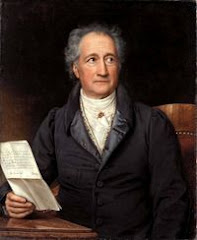Its interesting to see how damaged the relationship between the Popes and German Emperors were as opposed to when Karl der Große was crowned and the later French/Norman Powers. The crowning of Karl was a great political move for both Emperor and Pope. Since the fall of the Western Roman Empire, there had been no Emperor in the west, and while the Eastern Roman Empire (Byzantine Empire) still claimed ownership of the former western part, a variety of factors however would make this impossible (The migration of Germanic Tribes into Italy, Gaul, etc, along with the growing spit of cultural differences between the Eastern Romans(Greeks) and the now Germanic West). The Pope saw in the crowning of Karl, a way to discard the Byzantine claim on power in the West, a protector of the Papal States, and Western Christendom, and a way to expand the power and influence of the Church. The benefits for Karl were just as great, being labeled Emperor, and having the blessing of the Western Church on his realm.
The rise of the German Emperors and the Holy Roman Empire would bring different relations between the Pope and Emperors. The on going struggle and distrust between Pope and Emperor over religious and secular power(which we already talked about) would go on for many years, with Emperors setting up Antipopes, and Popes forming alliances against the Empire. Its interesting to note that however much fighting went on between the Popes and Emperors, the Popes would still crown the German Kings, Emperors, even if to excommunicate them later. I found it funny that the German Emperors who inherited a tradition of being the protectors of the Pope since Karl would go the other direction and fight against him, even though the Popes continued to crown them.
Greg Tomusko
Thursday, January 17, 2008
Subscribe to:
Post Comments (Atom)







.jpeg)


1 comment:
I am writing this response in reference to the two posts made by Seth and Greg.
I find the change in the relationship between the pope and the emperor very interesting. At first, during the time of Charlemagne, the pope was in dire need of protection from being conquered. During the middle ages, however, there was an on-going conflict between the pope and the emperor. It is interesting how in such a short time the relationship between the two totally changed.
In Seth’s post, he included a link to a video regarding the war between Charlemagne and King Desidarius. In 772 Desidarius wanted to wage war against the papacy because this political entity had posed a threat to him. For this reason, the pope needed some sort of protection from the Lombards. He looked northward to Charlemagne, who was more than willing to help him. Charlemagne’s army was massive, well-equipped, and disciplined and thus he was able to conquer the Lombards. At this time, the pope just needed anyone to protect him from being conquered. Charlemagne was willing to fight for the pope, which helped save the papacy. This is probably the main factor as to why Charlemagne was crowned emperor by the pope.
As the Holy Roman Empire was founded and Germanic emperors began their reign, the relationship between the emperor and the pope was still amicable. At the beginning, the pope still possessed more power because he would crown the emperor. As time progressed, however, the emperor became more and more powerful and eventually possessed more control than the pope. The conflict between the two originated when the German emperors tried to reform the church. They believed that the priests and pope should be more concerned with religion and spirituality rather than collecting money through the sale of indulgences. This struggle of the secular world versus the spiritual world caused a rift between the emperor and the pope, which ultimately led to the excommunication of emperors and the removal of popes from power. Luckily, in the end, the two parties were able to agree upon a compromise. Like Greg, I find this relationship funny. I think it is interesting and ironic that the pope had more power at the beginning (since he was chosen to rule the Catholic Church by God), but eventually became less powerful than the emperor, who was crowned by the pope. The eventual compromise was a smart move for both men. The pact between the two was the sign of complete power, merging the secular and spiritual worlds once again.
Mark Esser
Post a Comment